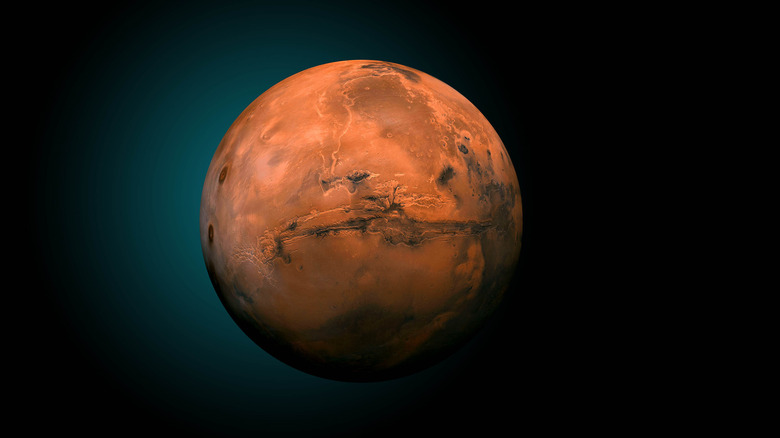Mars Might Have Been More Habitable Than We Thought
Mars has always been considered the next best choice for human life if we decide to colonize other planets. In fact, research into just how habitable Mars could potentially be has been underway for years. Although concrete plans for colonization are still a long way out, the research is promising, and a new tidbit of information is likely the biggest advancement we've had in years to understanding our future on the Red Planet.
It has previously been established that Mars could theoretically be capable of producing life through the existence of old water streams. However, a new study published in Nature claims that there is proof of water cycling through wet and dry periods of time. This was concluded by using NASA's Curiosity rover to analyze mud crack formations, which were deemed conducive to repeated cycles. Some of the cracks, scientists theorize, indicate that water cycles were prevalent for millions of years.
"That was really exciting to us," contributor William Rapin told Space in an interview. "It was an unexpected type of rock, something we hadn't seen on Mars before."
What this could mean
This admittedly sounds very scientific, and we won't blame you for not entirely understanding what this means. Thankfully, the findings of the Nature study can be summarized as such. Since the cracks in these structures appear to be deep enough to sustain water for millions of years in a seasonal manner, the basis of life creation was at one point organically possible. If life was able to generate and live in these conditions, this means the planet Mars used to be was likely more than capable of hosting humankind.
"So far, research has focused on the question of whether life arose on Mars," William Rapin added, "and now we can also look for traces of how might life have arisen on Mars."
Although more research is expected, it is unclear whether it has already started. It is also unclear what this means for the current state of Mars. What caused the sustainability of life on Mars to decrease? Can the circumstances be replicated? These questions and likely many more are still unanswered, and the answers we are looking for likely won't be found for a while. In the meantime, it's really cool that we have concrete proof that cycles of life have been proven to have existed on Mars.

